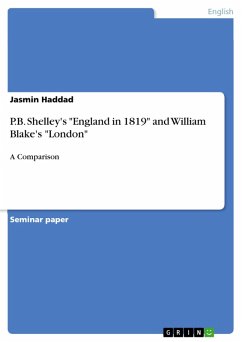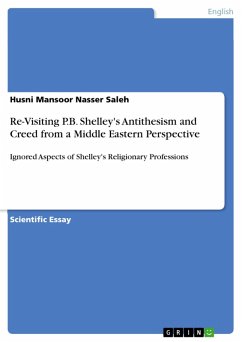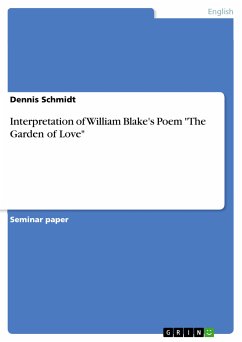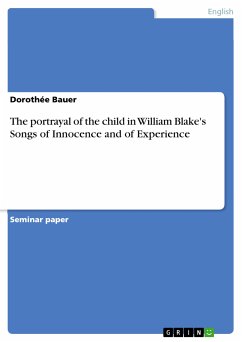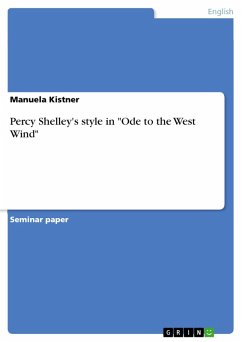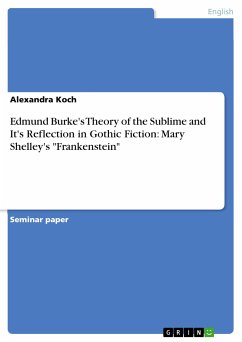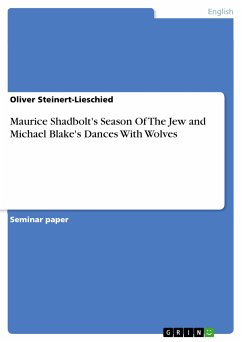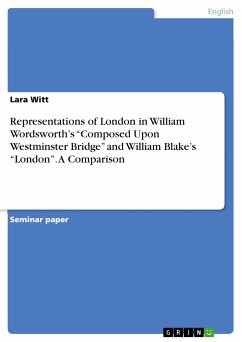Seminar paper from the year 2021 in the subject English Language and Literature Studies - Literature, grade: 1,7, University of Heidelberg (Anglistisches Seminar), language: English, abstract: Political and social grievances have always been inspirational sources for literary work. The poems "England in 1819" by P.B. Shelley and "London" by William Blake are both concerned with the political and social impacts of the Industrial Revolution and the turbulent regency of King George III in England. Although the poems discuss a very similar issue, there are significant disparities with regards to their themes as well as their formal and rhetorical features. P.B. Shelley's sonnet "England in 1819" is metered in iambic pentameter but does not fit the rhyming pattern of a traditional Petrarchan sonnet. Moreover, there is no typical division between the first eight and the final six lines. The structure is disorganized and unsteady, exactly like the condition of England in 1819 seemed to be. The speaker describes the dreadful state of the nation and directs his critique towards the responsible - the ruling powers. The first six lines of "England in 1819" are concerned with the monarchy, representing the greatest source of all evil.
Dieser Download kann aus rechtlichen Gründen nur mit Rechnungsadresse in A, B, BG, CY, CZ, D, DK, EW, E, FIN, F, GR, HR, H, IRL, I, LT, L, LR, M, NL, PL, P, R, S, SLO, SK ausgeliefert werden.

